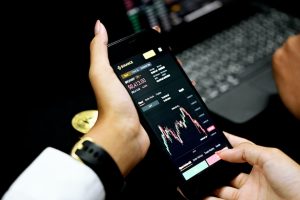The foreign exchange market, also known as forex, is the largest financial market in the world, with a daily trading volume of over $5 trillion. Forex trading involves buying and selling currencies to make a profit from the fluctuations in exchange rates. One of the unique features of forex trading is the ability to trade multiple contracts, or lots, at once. In this article, we will explore the reasons why traders trade so many contracts in the forex market.
1. Leverage
One of the main reasons why traders trade multiple contracts in the forex market is leverage. Leverage is the ability to control a large amount of money with a small amount of capital. Forex brokers offer high leverage, sometimes up to 500:1, which means that traders can control up to $500,000 with just $1,000 of capital. This allows traders to make larger profits with smaller investments. However, leverage also increases the risk of losses, so traders should use it wisely.
Trading multiple contracts with leverage can amplify profits and losses. For example, if a trader buys 10 contracts of EUR/USD at 1.2000 with 100:1 leverage and the price goes up to 1.2050, the trader would make a profit of $500 (10 contracts x $50 per contract). However, if the price goes down to 1.1950, the trader would lose $500. Therefore, it is important for traders to use risk management tools such as stop-loss orders to limit their losses.
2. Scalping
Another reason why traders trade multiple contracts in the forex market is scalping. Scalping is a trading strategy that involves buying and selling currencies quickly to make small profits. Scalpers typically hold positions for a few seconds to a few minutes and aim to make a few pips per trade. To maximize their profits, scalpers trade multiple contracts at once.
For example, a scalper may buy 50 contracts of EUR/USD at 1.2000 and sell them at 1.2005, making a profit of $250 (50 contracts x 5 pips x $1 per pip). While the profit per trade may be small, scalpers can make multiple trades per day, which can add up to significant profits.
Scalping requires a lot of discipline, as traders need to make quick decisions and execute trades rapidly. It also requires a lot of practice and experience, as scalpers need to be able to read the market and anticipate price movements. Scalping is not suitable for everyone, as it can be stressful and requires a lot of screen time.
3. Diversification
Traders also trade multiple contracts in the forex market for diversification. Diversification is the practice of spreading investments across different assets to reduce risk. Trading multiple contracts allows traders to diversify their portfolios and reduce their exposure to individual currencies.
For example, a trader may buy 5 contracts of EUR/USD, 5 contracts of GBP/USD, and 5 contracts of AUD/USD. If one currency pair experiences a significant loss, the trader’s overall portfolio will not be as affected as if they had only traded one currency pair.
Diversification can also help traders take advantage of different market conditions. Some currency pairs may be more volatile or have higher liquidity than others, which can affect trading strategies. By trading multiple contracts, traders can adjust their portfolios to different market conditions and optimize their profits.
4. Hedging
Finally, traders may trade multiple contracts in the forex market for hedging. Hedging is the practice of using one investment to offset the risk of another investment. In forex trading, hedging involves opening a position in the opposite direction of an existing position to reduce the risk of losses.
For example, if a trader has a long position in EUR/USD, they may open a short position in EUR/USD with the same amount of contracts to hedge their position. If the price of EUR/USD goes down, the profits from the short position will offset the losses from the long position.
Hedging can be a useful tool for managing risk, but it also requires careful planning and execution. Traders need to consider the costs of hedging, such as spreads and commissions, and be aware of the potential limitations of hedging strategies.
In conclusion, traders trade multiple contracts in the forex market for a variety of reasons, including leverage, scalping, diversification, and hedging. Trading multiple contracts can amplify profits and losses, so traders need to use risk management tools and strategies to reduce their risk. Forex trading is a complex and dynamic market, and traders need to stay informed and adapt to changing market conditions to succeed.






